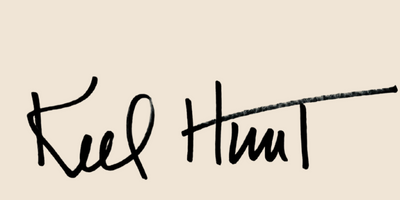Readers Sound Off, on Reading
/No recent column I have written has drawn as much positive feed-back as last Sunday’s piece with my “Reading List for a troubled Time.” Turns out a lot of us feel rather strongly about the civic anchoring that important books, plays, speeches and films can provide.
If you didn’t catch it in the Sunday newspaper (or maybe you didn’t work your way through all the ads, pop-up videos and other interruptions that keep Tennessean.com on the air), no problem. You can read it now. Just scroll down this page and click on the most recent Field Note (“Words that Matter…”).
Many readers responded by direct email with a simple “Thank you” (always much appreciated). Others suggested their own favorite titles to add to my list. I value this kind of engagement with readers - and for that I “Thank you” back. A few examples:
Andy Brennan, the affable store manager at Parnassus Books in Nashville, told me he planned to “make a display with some of these titles.”
Joel Wallace tweeted about another notable speech with a Tennessee connection: President Kennedy’s 1963 address at Vanderbilt University. (Joel also said that speech was first recommended to him by Bill Purcell, the former mayor of Nashville.) The president brought a powerful message to Dudley Field that day, about the responsibilities of educated citizens. Two other readers told me they had been there that day. Hear JFK now, at this link: https://americanrhetoric.com/speeches/jfkvanderbiltconvocation.htm
The lawyer Nathan Ridley wrote to me quoting words from George Washington’s Farewell Address, in which our first president warned against the rise of political parties.
Dr. Ming Wang, the Nashville eye surgeon, made this comment in an email: “Even though we do have a democratic society, the important prerequisite is that we must have an informed public. Our knowledge and independent thinking today are short-circuited by brief soundbites and sensational images on the media. We need to read much more, to learn about where we have come from as a human race, what we have learnt, and what we should do!”
Amen to that.
In a troubled and sometimes angry time like ours, we most need to meet on some common ground. We can find it through familiarity with the great written works of history, of fiction and nonfiction, and of theatre and film - and by engaging with each other about what we have read and appreciate. This is what book clubs do, and it is what the best teachers lead our children and grandchildren to do, too. To find these source documents and their lessons for this turbulent age, ask a librarian. Librarians are some of my favorite people. (More to come on that, another day.)
Today is a prime time for reading the wisdom of the world, in its many forms: essays from antiquity, novels of the Enlightenment, the great speeches on freedom and democracy and what democracy requires of citizens and our leaders. By extension, they can also help us keep clear about our fundamental bearings as a nation.
Here are Seven Reasons to Read Broadly:
To recall where we’ve come from.
To reset our nation’s compass back to level.
To know the most important lessons of our world with the help of historians and novelists, playwrights and poets.
To be reminded how civilizations rose – and how some saw (too late) their societies seized by tyrants.
To remember our shared meanings of words not their opposites – that up is not down, and down is not up.
To keep clear about the plumb line that tells the difference between good and bad, and divides the proper from the corrupt.
To see how we all count, how even our newest neighbors have great worth, too. All make us strong not weak.
Thanks for your help with this. I wish us all Good Reading, and good progress on our path to Common Ground.


